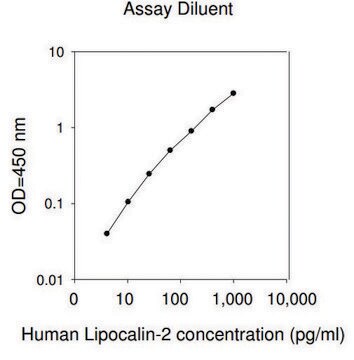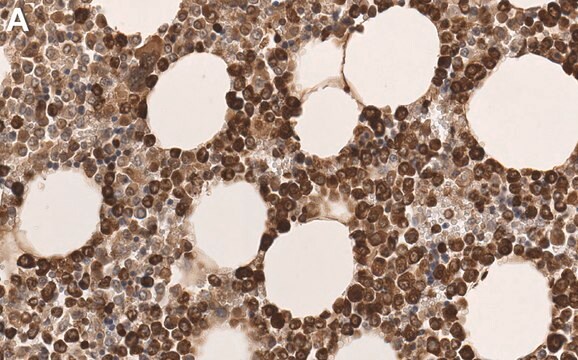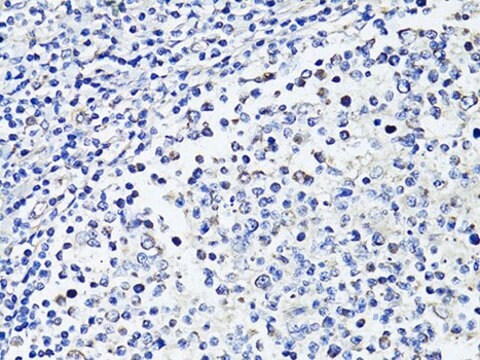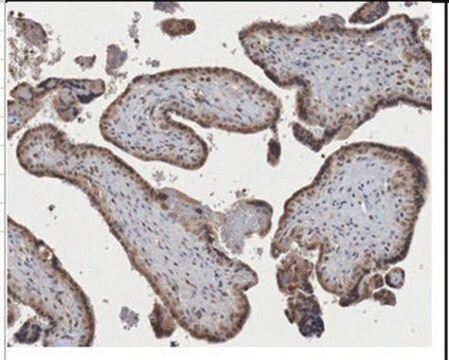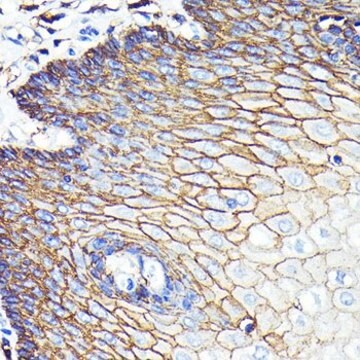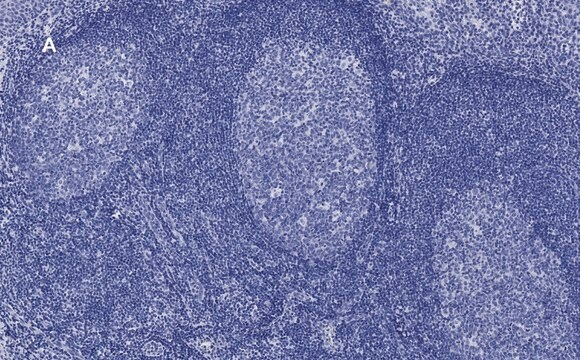MABN481
Anti-Lipocalin-2 Antibody, clone PA348-26.3.5
clone PA348-26.3.5, from mouse
Synonym(s):
ngal, neutrophil lipocalin, siderocalin, Neutrophil gelatinase-associated lipocalin, NGAL, 25 kDa alpha-2-microglobulin-related subunit of MMP-9, Lipocalin-2, Oncogene 24p3, Siderocalin LCN2, p25
About This Item
Recommended Products
biological source
mouse
Quality Level
antibody form
purified antibody
antibody product type
primary antibodies
clone
PA348-26.3.5, monoclonal
species reactivity
human
technique(s)
ELISA: suitable
immunohistochemistry: suitable
western blot: suitable
isotype
IgG1κ
NCBI accession no.
UniProt accession no.
shipped in
wet ice
target post-translational modification
unmodified
Gene Information
human ... LCN2(3934)
General description
Immunogen
Application
ELISA Analysis: A representative lot from an independent laboratory detected Lipocalin-2 in indirect ELISA.
Neuroscience
Neurodegenerative Diseases
Quality
Western Blotting Analysis: 1 µg/mL of this antibody detected Lipocalin-2 in 10 µg of human lung tissue lysate.
Target description
Physical form
Storage and Stability
Other Notes
Disclaimer
Not finding the right product?
Try our Product Selector Tool.
Storage Class
12 - Non Combustible Liquids
wgk_germany
WGK 1
flash_point_f
Not applicable
flash_point_c
Not applicable
Certificates of Analysis (COA)
Search for Certificates of Analysis (COA) by entering the products Lot/Batch Number. Lot and Batch Numbers can be found on a product’s label following the words ‘Lot’ or ‘Batch’.
Already Own This Product?
Find documentation for the products that you have recently purchased in the Document Library.
Our team of scientists has experience in all areas of research including Life Science, Material Science, Chemical Synthesis, Chromatography, Analytical and many others.
Contact Technical Service
